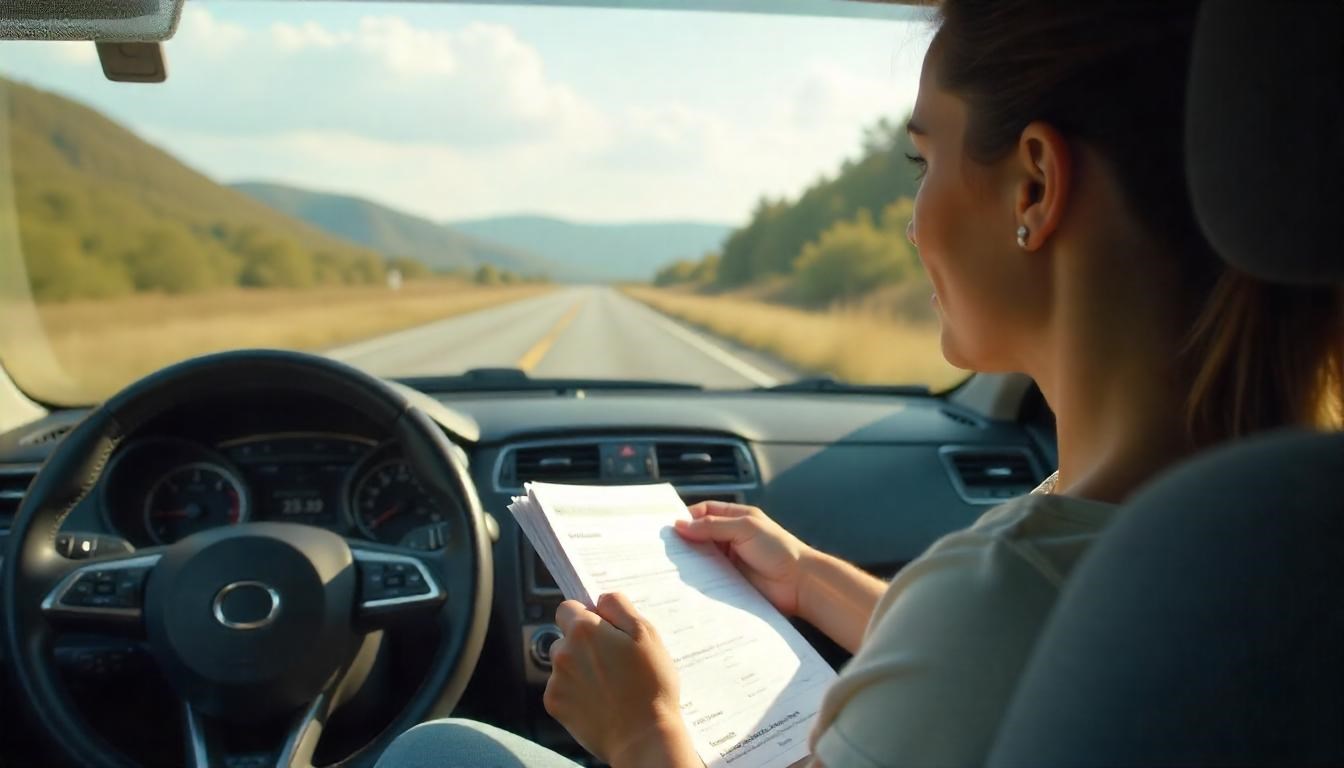9000+ Cashless Garages
1.2 Cr+ Policies Sold

9000+ Cashless Garages
1.2 Cr+ Policies Sold



When travelling out of the station, you are bound to come across multiple check posts and tolls where you will need to produce specific documents to be carried while driving.
The first thing you want to prove to the traffic police or any other authorities is that the vehicle you are driving belongs to you and is not robbed or stolen. The RC of a car fulfils this purpose effectively.
If you have just bought a car, make sure to get its registration certificate within 7 days of purchase before setting out on a long drive. It is one of the mandatory documents required on a road trip or in general, as per the Motor Vehicles Act, 1988.
You do not have to be an environmentalist to make sure your four-wheeler does not contribute to the harmful emissions deteriorating the air we breathe. This is because there are already legal standards establishing acceptable emission levels, and Pollution under Control Certificate is proof that your car meets the same. Having a valid PUC certificate indicates that your vehicle does not emit smoke and gases leading to air pollution. The following details determine this.
The Pollution under Control Certificate is one of the significant documents to be carried while driving. For new four-wheelers, you will get a PUCC valid for up to 1 year from your dealer.
PUCC is one of the essential documents required for a car trip, helping owners periodically monitor their vehicle’s emissions.
According to the Motor Vehicle Act, 1988, all vehicles travelling in a public area must be covered under a third-party insurance plan. With any of these policies, your insurance provider is bound to provide you with a Certificate of Vehicle Insurance during purchase or renewal, besides the policy papers according to Rule 141 of the Central Motor Vehicle Rules 1989.
Although you can lock away all policy documents in your safe, the insurance certificate must be present among documents to be carried while driving. This is especially applicable when you are setting out on a long drive or a road trip.
One of the most essential documents to be carried while driving is a driving license (DL). Several individuals also mistake a DL for the only document required to be carried while travelling. This is not the case, as you might have understood by now.
Besides the above classification, a driving license can also be of different classes depending on the vehicle type they are issued. These categories for four-wheelers include LMV-NT for personal use. The categories for commercial use include LMV, MGV, HMV, HGMV, HPMV/HTV, TRAILER, and TRANS.
Besides being one of the indispensable documents required while driving a car, a driving license also serves as proof of identity in a variety of organisations.
Besides the mandatory documents mentioned in our list, there can be a few other vehicle documents to carry while going to road trips. These include a Vehicle Fitness Certificate, which indicates that your four-wheeler is operating with utmost efficiency and is fit to be driven on public roads. Not having a fitness certificate can make your vehicle’s RC and PUCC obsolete and cost you heavy penalties and even lead to car confiscation.
Apart from documents related to the car, individuals must also carry personal identification documents while travelling. An Aadhaar card and voter ID are some documents that can act as proof of identification.
However, carrying so many important documents on a trip can not only seem like a hassle but also involves the risk of being misplaced. If you are one of those individuals having this concern, here is a piece of good news! Individuals can avoid a penalty by displaying soft copies of these mandatory documents when stopped on the road.
However, if you still prefer carrying hardcopies, make sure to organise all of these documents properly. Keeping them in folders can help, ensuring that you do not forget to carry any specific documents.
Check the following fines and fees, if you fail to carry the required documents listed below in your road trips.
|
Document not carried |
Fines/Penalties |
Act/Section |
|
Driving license |
Rs.5000 |
Section 181 of Motor Vehicles Act |
|
Auto insurance documents |
Rs.2000 |
Section 196 of Motor Vehicles Act |
|
Valid permits |
Up to Rs.10000 |
Section 192A of the Motor Vehicles Act |
|
RC Book |
Rs.2000 |
39 r/w 192 Motor Vehicles Act |
|
PUC Certificate |
Rs.1000 for first-time offense and Rs.2000 second time onwards. |
Section 190 (2) Motor Vehicles Act |
Section 4 of the IT Act 2000 and the November 2018 amendment of Rule 139 of CMVR, 1989, states that all vehicle documents in “electronic mode” are as legally valid as their physical counterparts. Note that these documents are valid only if present on the mParivahan or Digilocker app.
You can either display details of documents to be carried while driving online through these apps, or download their soft copies from these apps and store them on your device for later use.
On the other hand, the enforcement agencies can access and verify these documents through their eChallan app. They can either enter details of available documents like PUC, RC, DL, etc., or scan the documents’ QR code to check their validity. In light of the COVID-19 pandemic, traffic officers are also directed to register offenses, if necessary and issue challans online to maintain social distancing.
So, next time you plan to set out for that unplanned road trip, at least plan the availability of your vehicle documents in advance. Because following your impulses is great until it involves a penalty.